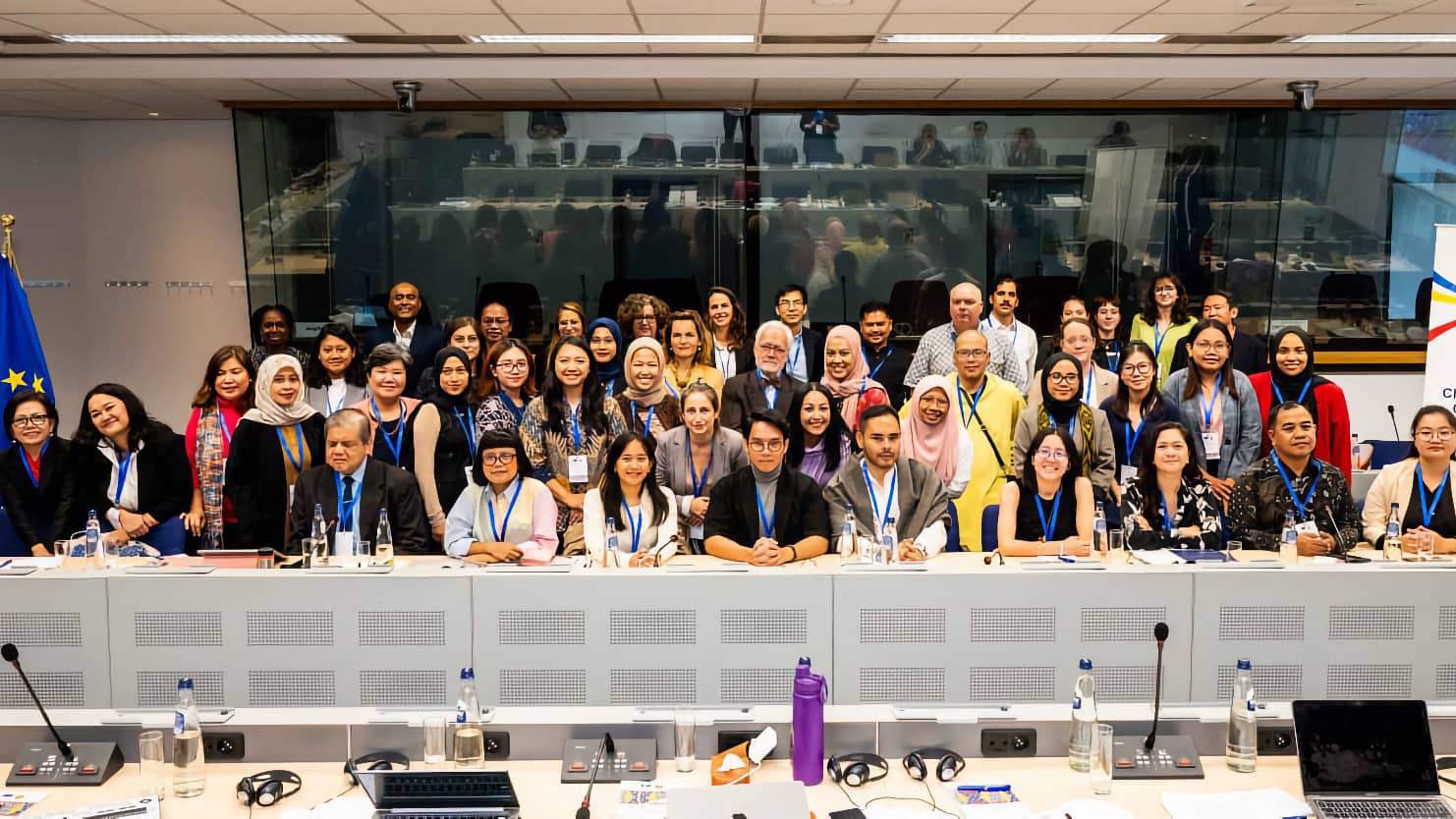
Brussels, Belgium, 3 October 2023
On behalf of the 38 civil society organisations (CSOs) that actively participated in the 3rd European Union (EU)-Southeast Asia CSOs Forum convened in Brussels, Belgium, on 2 October 2023, in anticipation of the 5th EU-ASEAN Policy Dialogue on Human Rights, we extend our sincere appreciation to the EU and ASEAN delegations for providing a platform for constructive dialogues with civil society representatives.
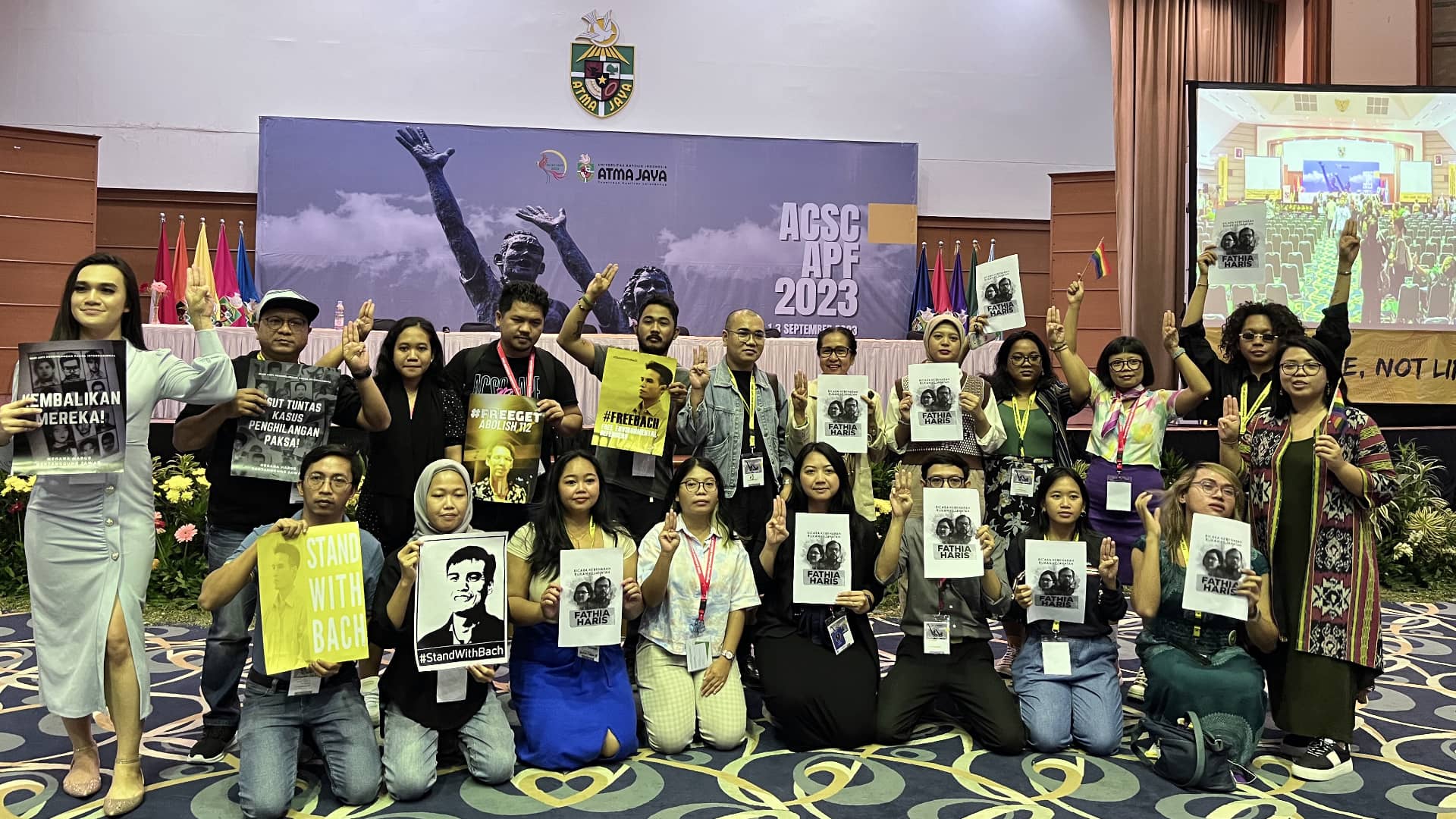
We, the Southeast Asian people from Brunei Darussalam, Cambodia, Indonesia, Laos, Malaysia, the Philippines, Singapore, Thailand, Timor Leste and Vietnam, stand in resolute solidarity with the diverse people of Myanmar who are resisting the military junta’s oppression.
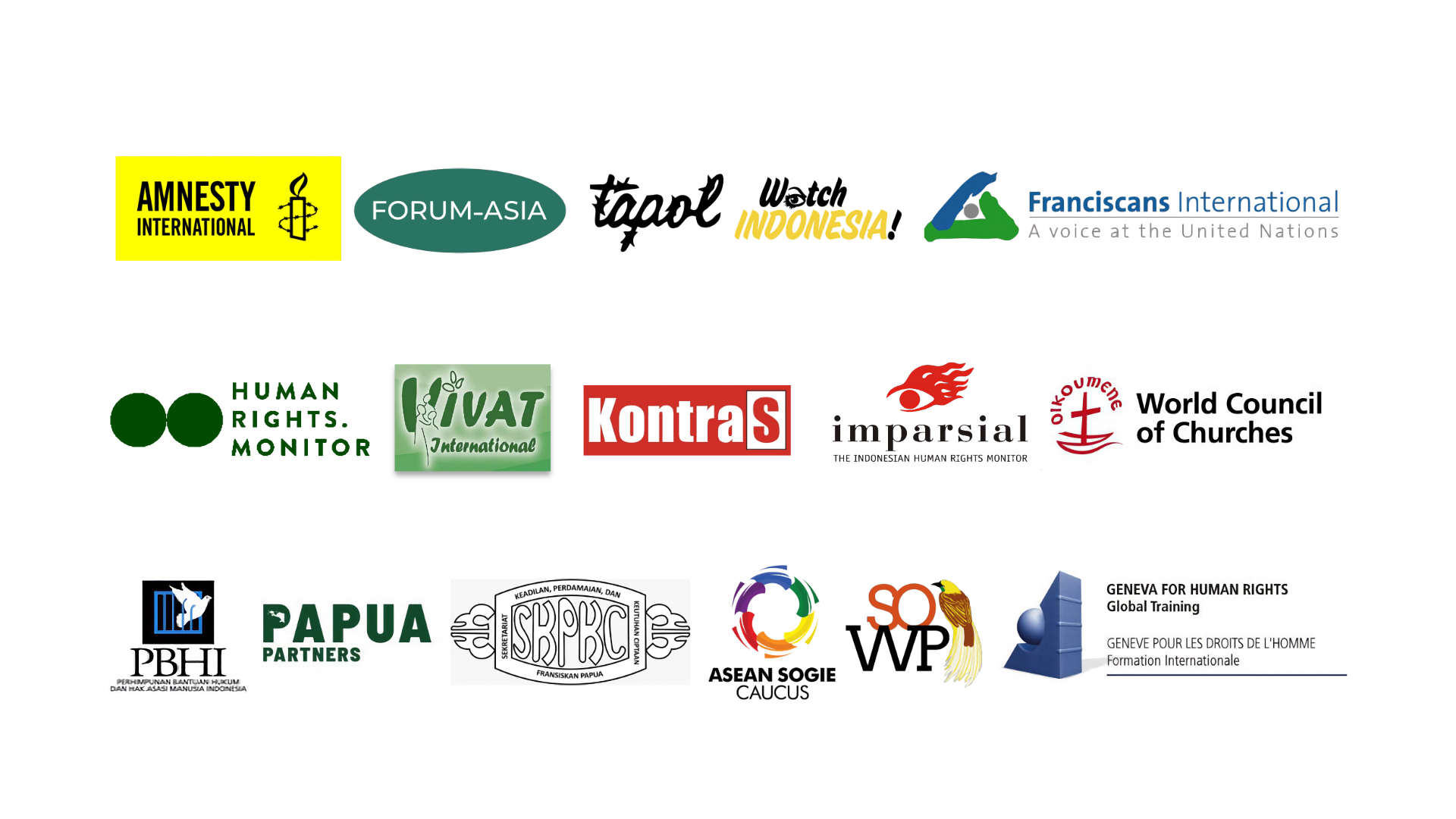
We, the undersigned civil organizations, write to you on the occasion of the candidacy of Indonesia for membership in the United Nations Human Rights Council for the period of 2024 to 2026.
Pursuant to UN General Assembly resolution A/RES/60/251, when electing members of the Human Rights Council (the Council), Member States take into account the contribution of candidates to the promotion and protection of human rights as well as their voluntary pledges and commitments made thereto (Operative Paragraph 8). The well-established practice for candidate States to submit voluntary human rights pledges in advance of Council elections is intended to assist in the election of States that are firmly committed to human rights.
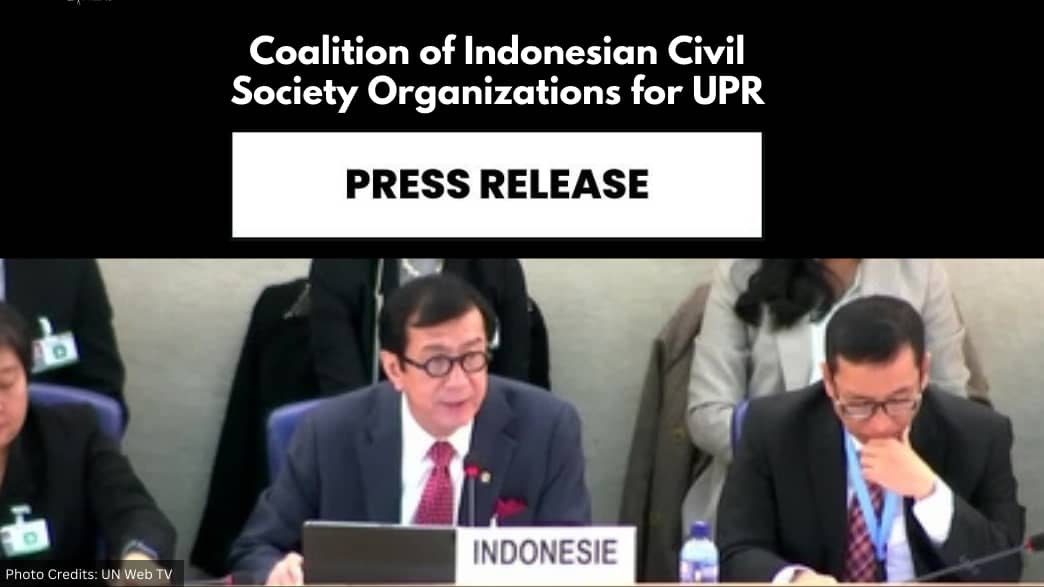
On March 21, 2023, through the official website of the UN Human Rights Agency (OHCHR), the Government of Indonesia (GoI) provided the adoption of its 269 recommendations received from the (UPR) 4th Cycle on November 9, 2022 at the Palais De Nations, Geneva, Switzerland. Based on a set of recommendations received, 55 recommendations were rejected through noted status, 5 recommendations were partially supported while 210 recommendations were given supported status.

This joint submission to the CEDAW Committee for their general discussion on equal and inclusive representation of women in decision-making was prepared by the Forging Intersectional Feminist Futures (FIFF) consortium.
The joint submission aims to highlight the multidimensional barriers that marginalised groups of women face in their access to equal and inclusive representation in decision-making systems, and provide substantive recommendations in response to these barriers.
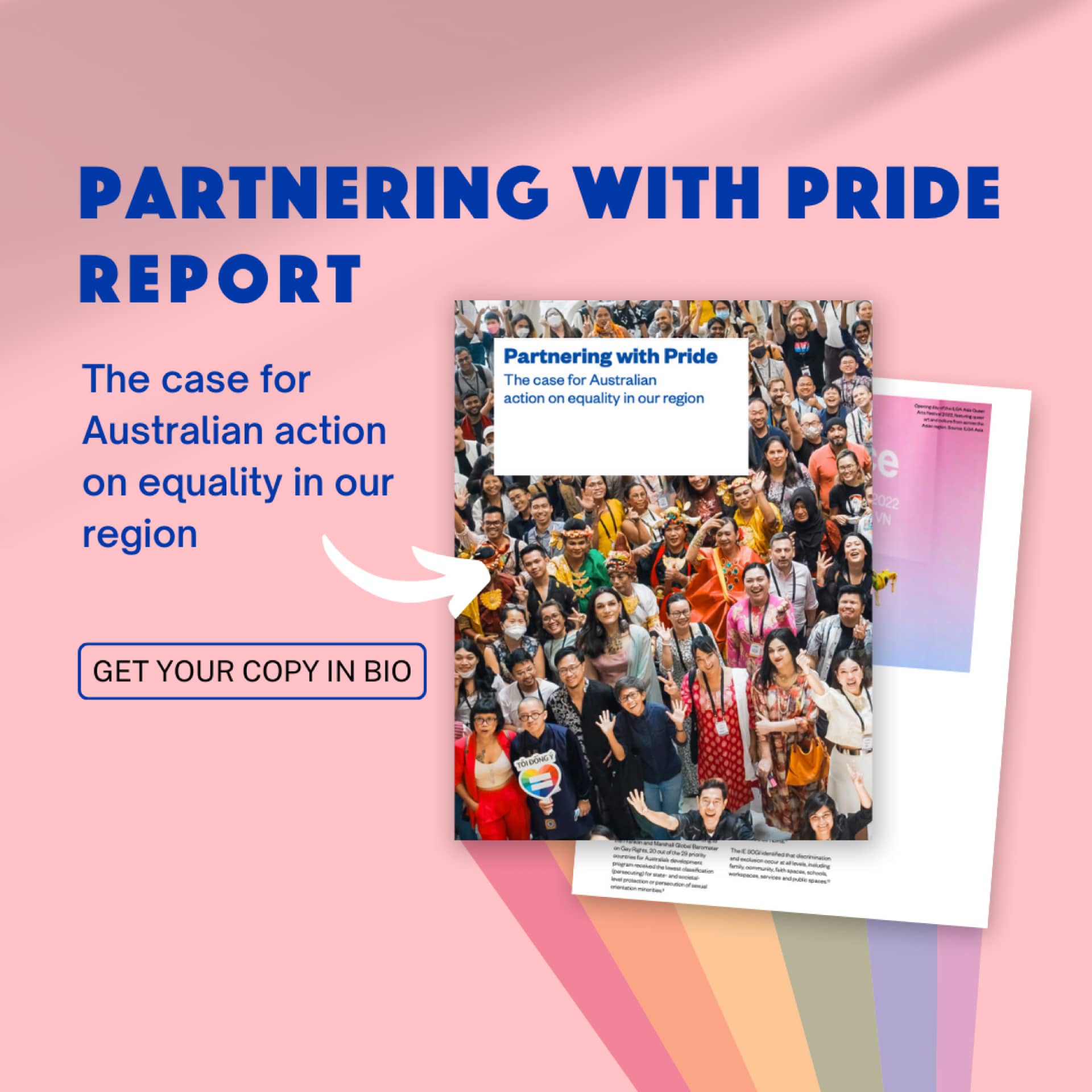
Ahead of the Sydney WorldPride Human Rights Conference, we’re proud to release Partnering with Pride: The case for Australian action for equality in our region.
Today, on the 2nd year commemoration of the historic peoples' resistance against the Myanmar military's attempted coup, we, the undersigned members, friends and civil society network of #MilkTeaAlliance Friends of Myanmar reaffirm our commitment and extend our heartfelt solidarity to the peoples of Myanmar in their continuing quest for genuine democracy, peace and social justice.
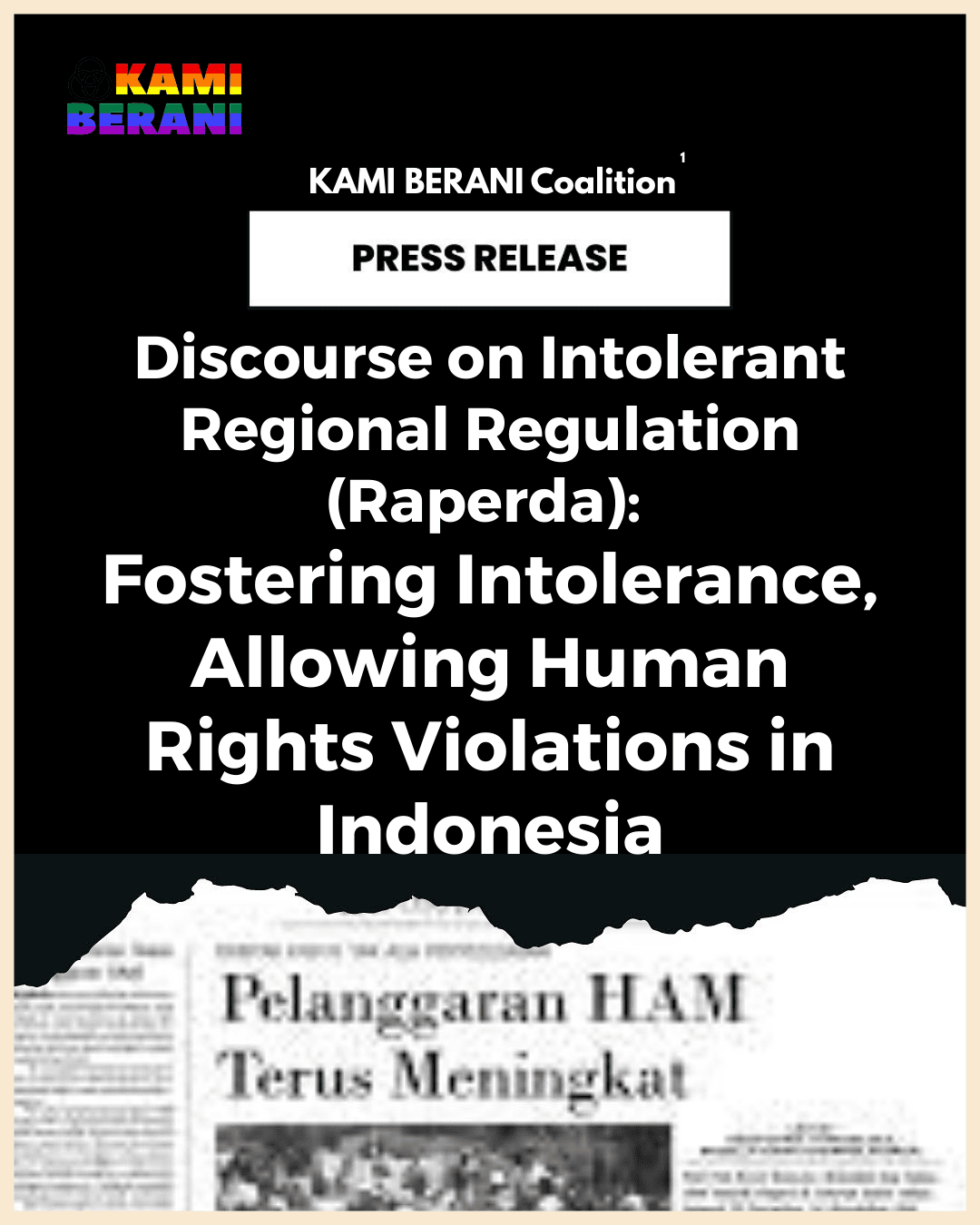
KAMI BERANI coalition, which consists of 24 civil society organizations (CSOs), regrets the widespread encouragement of discriminatory policies in the form of anti-LGBT regional regulations (Perda) in various regions in Indonesia.